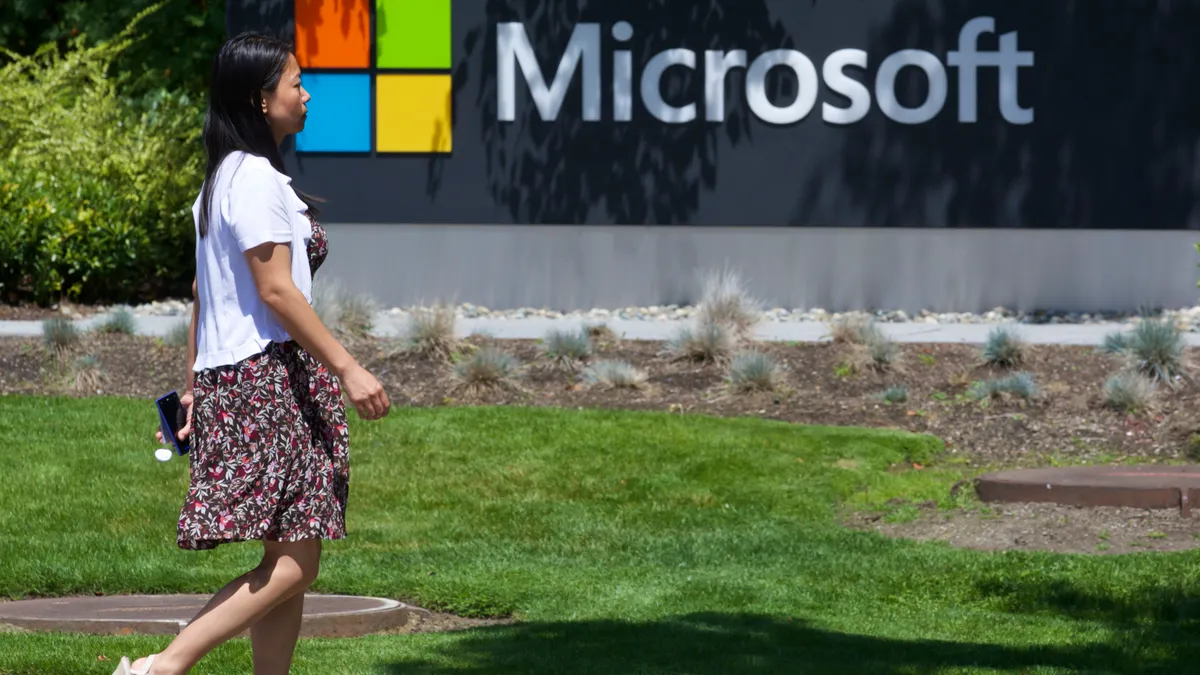Dive Brief:
- Microsoft has launched a new AI learning initiative aimed at helping workers get ahead of the digital skills gap and alleviate digital debt (data crunch), the tech giant announced June 30.
- The initiative, part of Microsoft’s Skills for Jobs program, includes new coursework developed with LinkedIn, according to the announcement. The courses offer instruction on introductory concepts of AI, responsible AI, and the core concepts and ethical considerations of generative AI, Microsoft said. Workers who complete the courses will receive a professional certificate on Generative AI, the announcement said.
- “AI skills represent the third-highest priority for companies’ training strategies, alongside analytical and creative thinking,” Gunjan Patel, director and head of Microsoft Philanthropies India, stated in the announcement. “AI has tremendous potential to empower workers; however, we need to ensure that everyone has the skills to use it.”
Dive Insight:
As venture capital-backed tech start-ups push to get new generative AI products on the market and huge tech faces like Microsoft, IBM and Google Cloud (in alliance with UKG) roll out automated tools that can perform worker tasks, such as creating job postings, identifying potential job candidates and managing employee requests, workers are having mixed reactions to its use.
For example, more than 6 in 10 of employees who responded to Microsoft’s recent Work Trend Index “said they struggle with too much time spent searching for information in their workday,” Kate Behncken, vice president of Microsoft Philanthropies, noted in a June 28 LinkedIn post. “And while 49% of people say they’re worried AI will replace their jobs, even more – 70% – would delegate as much work as possible to AI to lesson their workloads,” Behncken said.
However, “workers of all generations would rather undergo training to reskill for a new role at their current company than pursue a different position if their job was at risk [due to AI],” a June report from Robert Half found.
Big markets, such as transportation, supply-chain, healthcare and financial services, present opportunities for AI to provide better data insights and improve existing processes, a partner at a VC firm recently told CIO Dive.
But just as many employees require upskilling to unleash AI’s creative powers, and corporate leaders need to understand its risks to avoid costly financial, legal and reputational issues, a June report from MIT Sloan Management Review and Boston Consulting Group advised.
In particular, significant risks have emerged with third-party AI tools, which make up 55% of all AI-related failures, according to the MIT/BCG report. Yet, 78% of the more than 1,200 organizations that responded to a survey said they are highly reliant on third-party AI, and a fifth of these organizations fail to review their risks at all, the report found.
Instead, companies should properly evaluate third-party tools, prepare for emerging regulations, engage CEOs on Responsible AI (RAI) efforts and move quickly to mature RAI programs, the report’s authors urged.
There are HR concerns as well. Even as automation eases some tasks, a personalized touch remains important in recruiting, and HR professionals involved with hiring managers and talent acquisition teams should be careful not to over-rely on robots, experts have noted.
Unmonitored reliance can also trigger legal issues, such as those potentially raised by a recently passed New York City law regulating the use of AI in the hiring process.
The law has two main requirements: Employers must audit any automated decision tools used in hiring or promoting employees before using the tools, and they must notify job candidates or employees in advance before using the tools.
Although initially scheduled to take effect in January, enforcement of rules implementing the law and offering guidance to employers began July 5, according to a Morgan Lewis post.
“While AI technology can revolutionize work and improve efficiency, it’s important to make sure it doesn’t perpetuate historical discrimination,” EEOC Vice Chair Jocelyn Samuels cautioned during a January online discussion about AI.
In addition to providing worker training, the Microsoft initiative addresses a particularly concerning global issue: The lack of access to AI and AI training for underrepresented communities.
To this end, in connection with data.org, GitHub and Microsoft’s AI for Good Lab, the initiative launched an open grant challenge for nonprofits, social enterprise organizations and research or academic institutions to develop and implement generative AI for historically marginalized populations around the world, the announcement said. Organizations must apply for the challenge by Aug. 15.














